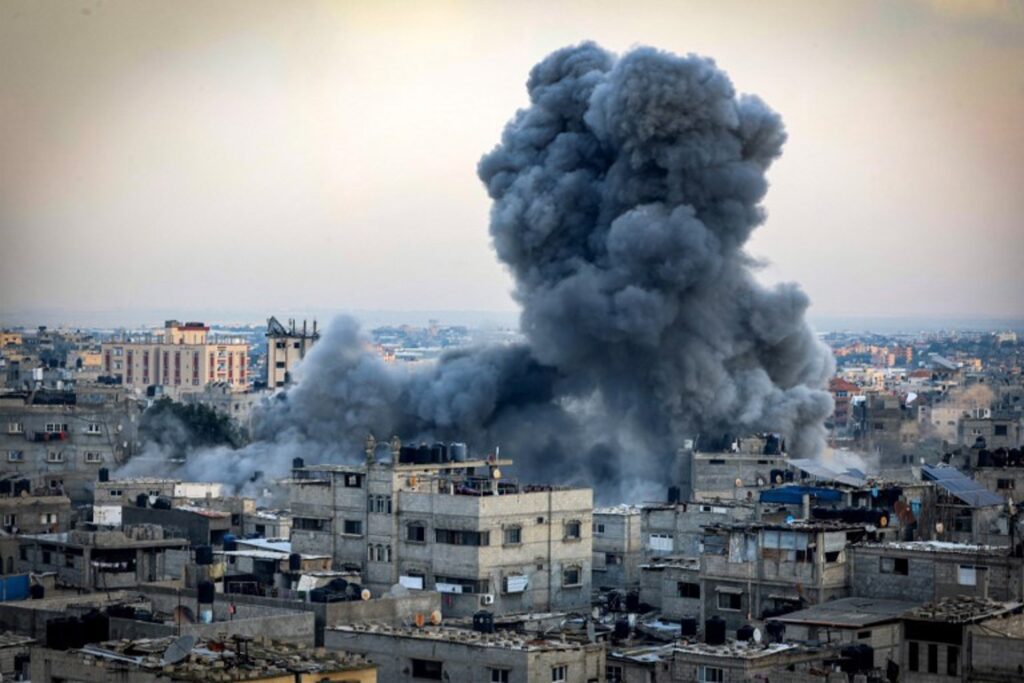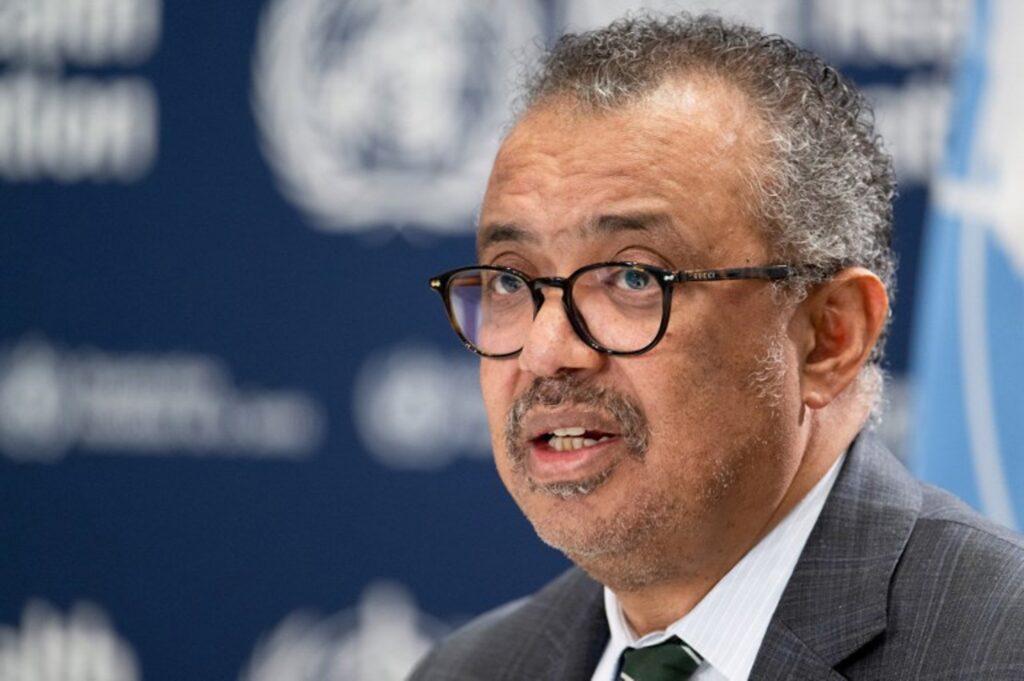The humanitarian situation in the Gaza Strip is “indescribable” amid unending Israeli military bombings, according to the chief of the World Health Organisation (WHO).
The distribution of aid is facing “almost insurmountable” challenges, said WHO Director-General Tedros Adhanom Ghebreyesus at a press briefing in Geneva. He described how civilians endure long queues for small portions of water, which may not be clean, or bread, which is insufficiently nutritious.
Since Israeli bombardments commenced following Hamas surprise terrorist attack on 7 October, the WHO has estimated that people in the Gaza strip have an average of just three litres of water each day. The organisation recommends a minimum of 50–100 litres per day to maintain health and sanitation standards.
Only 15 hospitals are partially operational. The shortage of drinking water, improper sanitation, and overcrowded living conditions create a perfect environment for the spread of diseases, Dr Tedros warned.

An Israeli airstrike in the densely populated area of Gaza. Israel says that it targets Hamas' militants, tunnels and other military targets. Credit: Belga
The senior official appealed for an immediate ceasefire or, at the very least, the establishment of safe humanitarian corridors which would enable the wider distribution of aid across the Palestinian territory.
The north – the epicentre of bombardments and battles in the early weeks of the war between Israel and the Islamic Hamas movement – has been inaccessible for WHO missions since 26 December. Seven missions were cancelled due to insufficient assurances that the convoys would be safe.
“The delivery of humanitarian aid in Gaza continues to face almost insurmountable challenges: severe movement restrictions due to the bombings, fuel shortages, and disrupted communications prevent WHO and its partners from reaching those in need,” confirmed Dr Tedros.
“We have the supplies, the teams and the plans in place. What we don’t have is access,” he stressed, calling on Israel to “grant permission for the delivery of humanitarian aid”.
Israel says that the number of trucks with humanitarian aid has increased to 200 per day. Most of them are entering from Rafah, the crossing point at the border with Egypt, and does not reach the northern part of the Gaza Strip where still up to 200,000 civilians have stayed. Some of the aid has been taken by Hamas which still controls the south. Israel has been urged to open a crossing point in the north.

